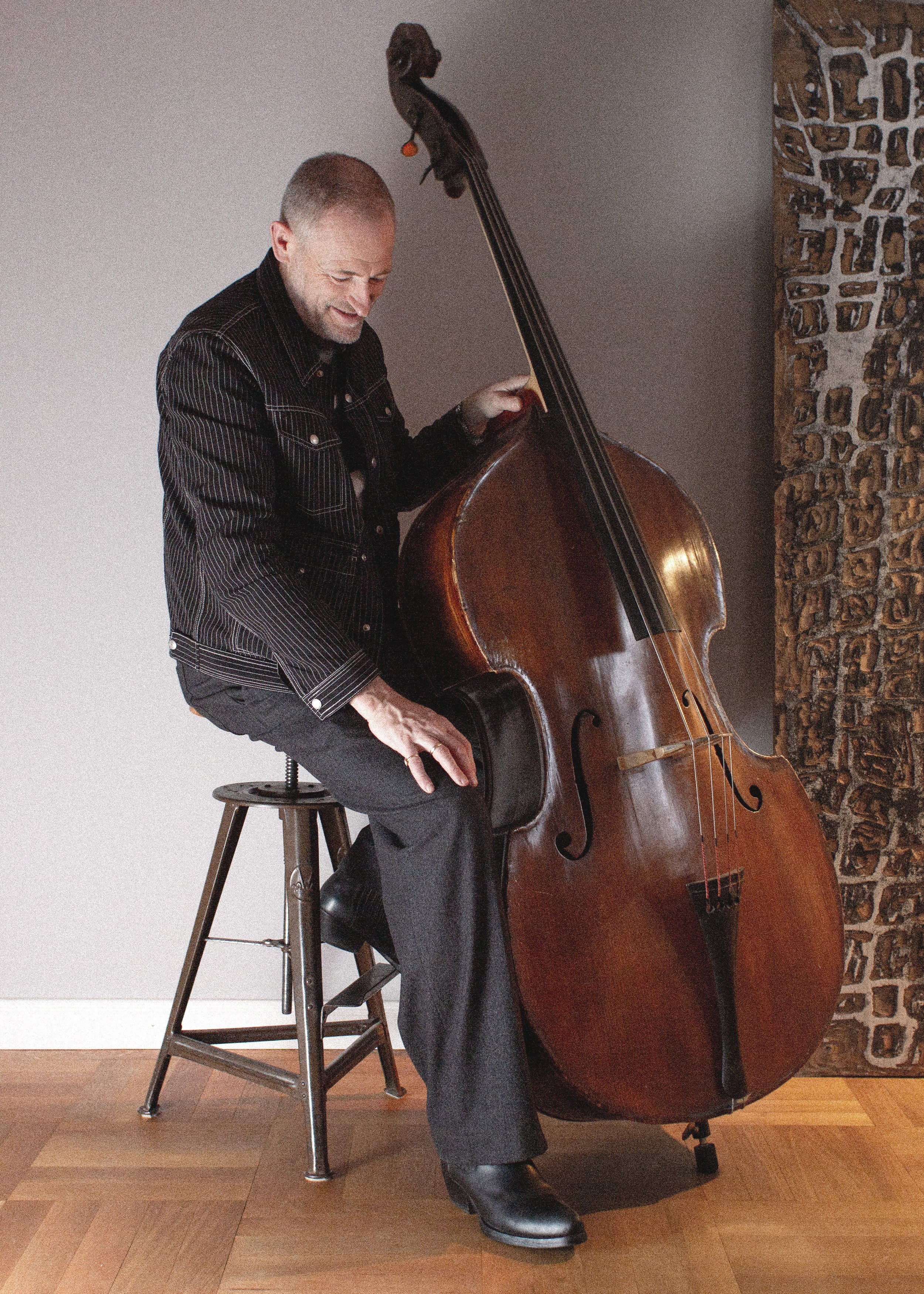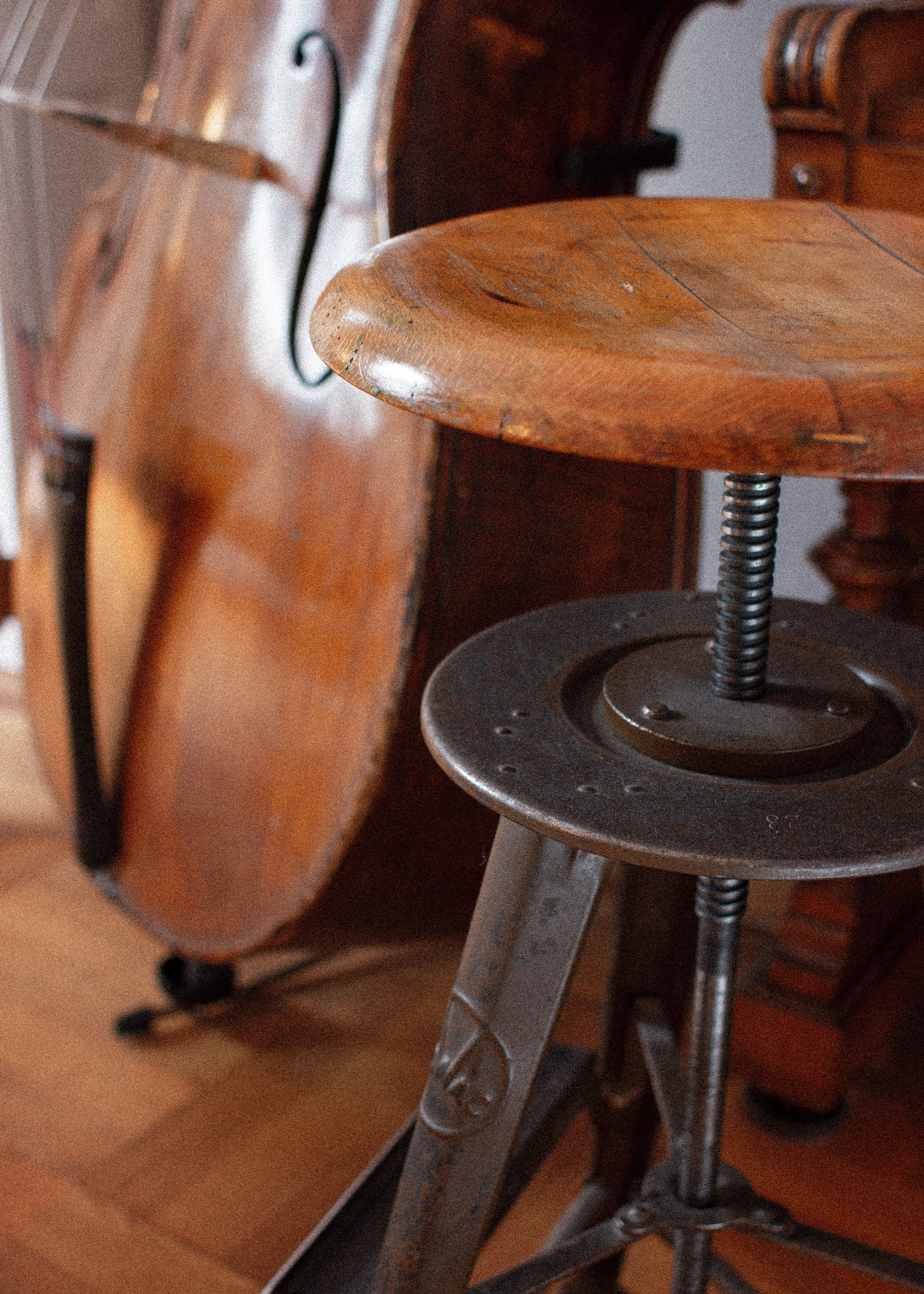Christof Hornung from the Hornung Textile Agency
„It's one of those industry classics that you just know.“
How did you get into the textile business?
That was quite a long journey. I'm a trained tailor and was given the opportunity to complete my training under a film, television and theater costume tailor. That was an incredibly exciting time, because I got totally crazy requests to sew everything imaginable for all kinds of productions.
That sounds like a multifaceted, exciting apprenticeship!
Exactly right. Just having had the opportunity to make costumes for Bayreuth, big opera houses, ballet companies, circuses and pop stars was something quite special. I was then able to meet these interesting personalities during the fitting. That was a very inspiring time. Despite all that, I was always interested in the industrial production side of the industry.
How did you end up in industrial production?
After a year abroad in Paris, where I worked for various designers, I studied clothing engineering in Hamburg. There I learned about textile chemistry, production techniques, production management, business administration and how to make cut patterns.
In January, Munich Fabrik Start took place, the largest fabric trade fair in Germany. What did you have to do with it?
Munich Fabrik Start is the biggest fabric fair north of the Alps. I exhibit there as an agency representing my Italian suppliers/weavers.
How do you decide which fabrics to show?
Fortunately, I know my customers very well by now, so I know what each one is interested in. I always like to use trouser fabrics as an example. These have to be able to stand up to a lot more wear and tear compared to other garments, like blazers and blouses.
How interesting! Are there any other fabrics with such intriguing properties?
Durable fabrics, like technical jerseys. The exciting thing about the material is that it can basically be used for everything; fashion and lingerie, as well as sportswear. So the spectrum is much wider in terms of what area and for which applications this type of fabric can be used.
Which fabric, which material appeals to you most at the moment?
Currently, I find very luxurious wool fabrics exciting to use for pants. Until now, wool pants were an absolute no-go. But ever since I started wearing wool pants myself, I've been totally impressed with the comfort the fabric brings. Wearing soft, flowing fabrics is a completely different way of life. Even in the summer, wool is incredible. You'd think you'd get too warm - but quite the opposite: wool actually cools you down.
What do you think about recycled fibers/alternative materials?
I follow that very closely, it's a big topic. For example, I have a client in Italy who recycles cashmere. To do this, they buy old cashmere sweaters and coats, sort them by color, shred them, and use this recycled material to spin new yarn for knitting and weaving.
Last year, your client presented this fabric at the big men's fashion fair "Pitti Immagine Uomo" in Florence. What was the response like?
Extremely good! But it was also due to the fact that we were able to show the complete supply chain from raw material to finished product. We even have certificates to back it all up.
Another interesting aspect is that recycling textiles used to be nearly unthinkable, but today there is a change in thinking and recycled material is valued much more.
Yes, it’s incredibly exciting. In the textile town of Prato, there are companies that have always recycled, but never communicated it before because no one wanted to hear it. The topic had a rather negative connotation and didn't really interest anyone. It's only been in the last two years that there's been a big push, and with it the opportunity to create a local circular economy. No one else in Europe has this know-how!
Chemnitz was once known for its textile industry, nearly all the textile factories there were equipped with Rowac products. How does a trained tailor working in today’s textile industry come to own a Rowac-Schemel?
When I fulfilled my long dream of learning to play the contrabass 20 years ago, I quickly realized that I needed a suitable stool for this purpose.
Were you specifically looking for a height-adjustable stool?
Absolutely, because when you play the contrabass you also tend to change your position from time to time. Sometimes you're more in a semi-standing position and the stool is for leaning on at that moment, but sometimes you turn it down to sit. Also, with a height-adjustable stool, I can set the height that's optimal for me down to the very last millimeter.
Did you know Rowac before you found it?
Yes, of course! It's one of those industry classics that you just know. Especially in the apparel industry, where a lot of stools are always used, I'm sure they showed up extremely often. I suspect they only disappeared because of health and safety guidelines.
Did you know that the shape of the Rowac-Schemel legs are specially designed so that clothing can't rub against them?
No, that's interesting! The Rowac-Schemel is simply a very beautiful object. The quality and stability really appealed to me. And I still find it incredible that this piece of furniture, which dates back to the 1930s, is still so perfect.
What music do you play?
Classical music, preferably Bach. There are no contrabass works by Bach, but there are a lot of great cello works that were rewritten by some genius contrabass player at some point and the fingerings were changed.
Now that makes me want to hear you!
I never got to the stage of playing in public, unfortunately. That's a challenge if you don't start playing an instrument as a child. Primarily, I play for myself alone.
That sounds meditative.
That's one way to describe it. Before I start playing music, I put the Rowac-Schemel in the right position. Then when I sit down, take the instrument in my hand and start playing, I'm completely gone. It's just very, very nice.
A real ritual.
Exactly, it's a ritual. And the stool is an integral part of it.











